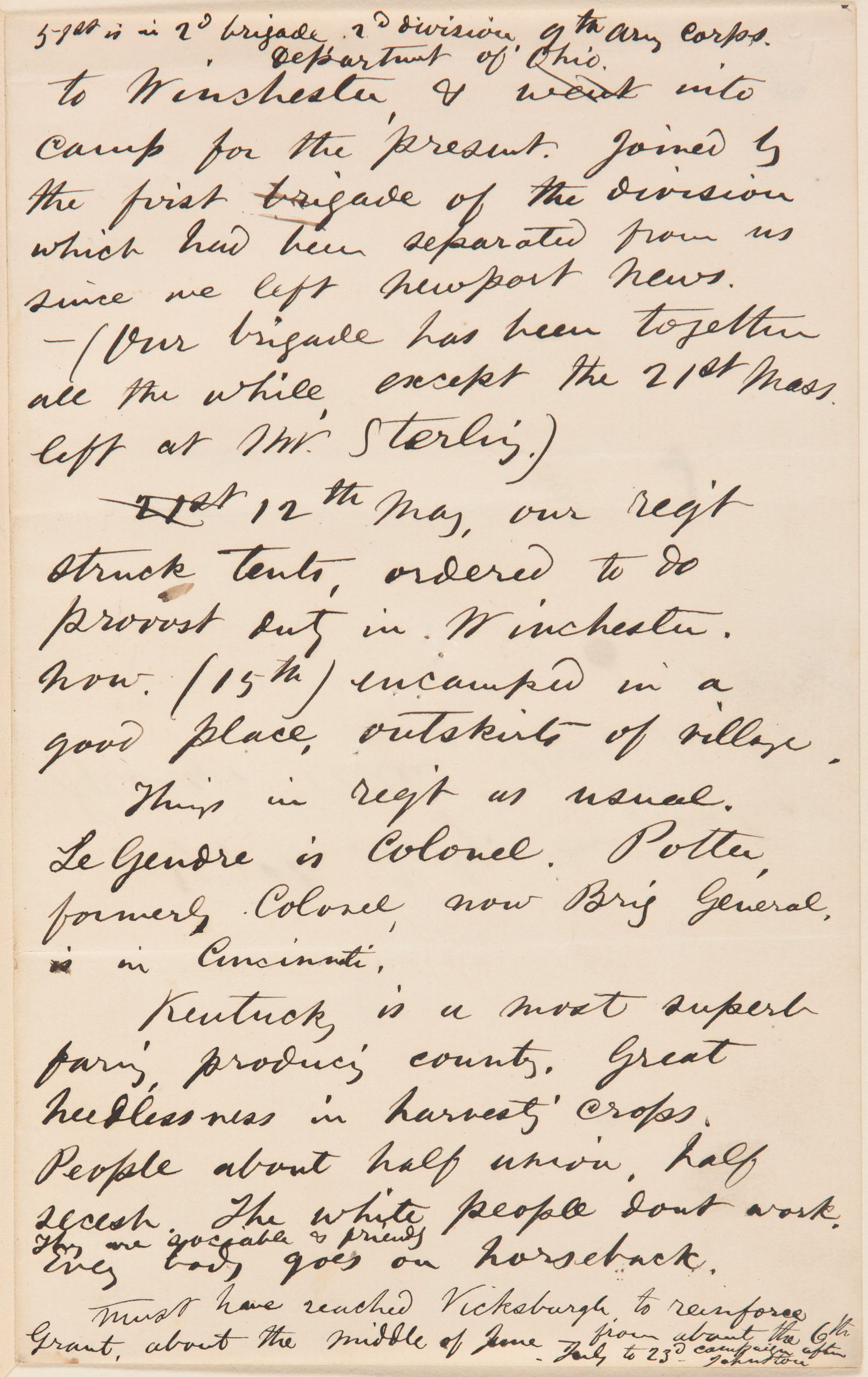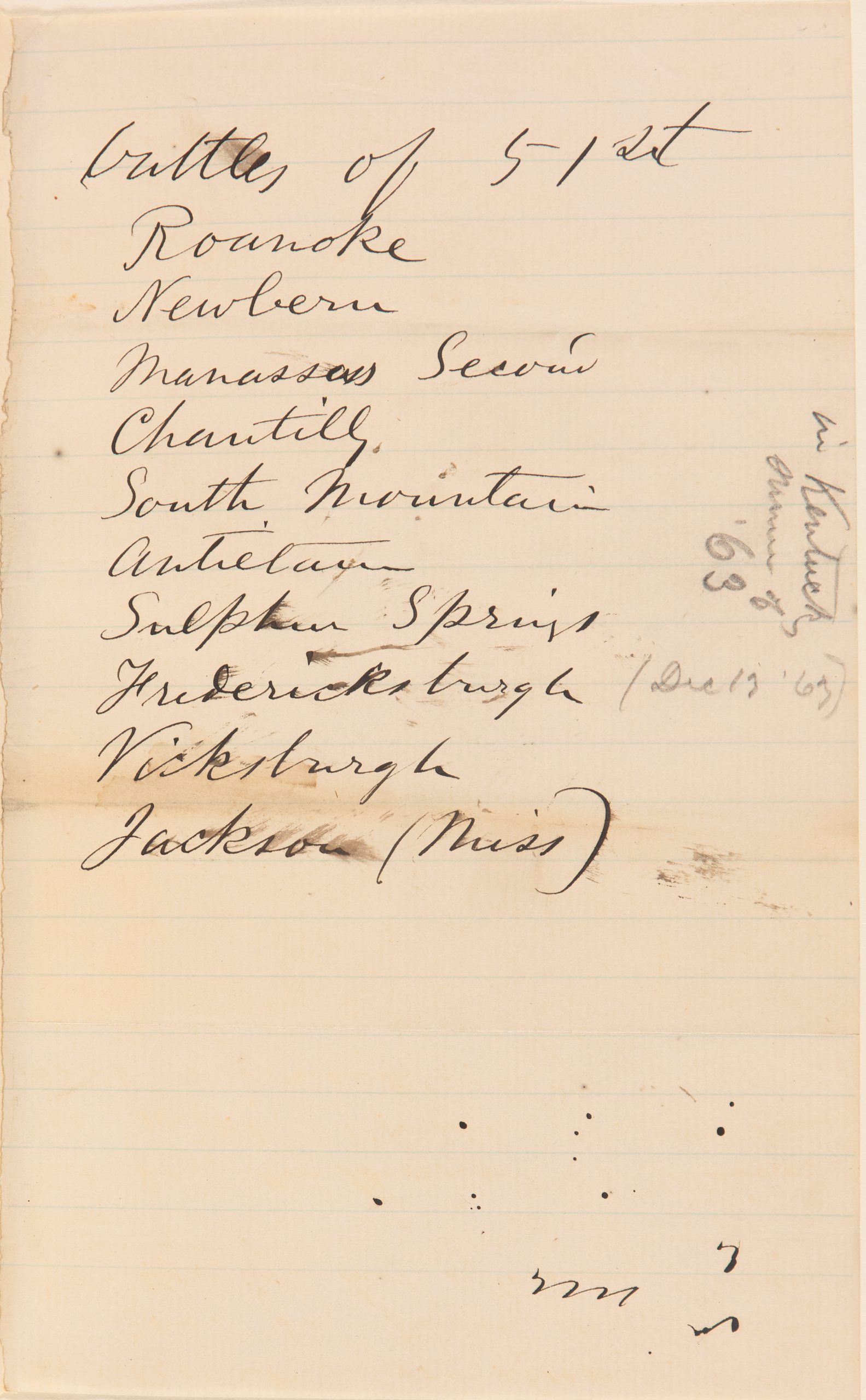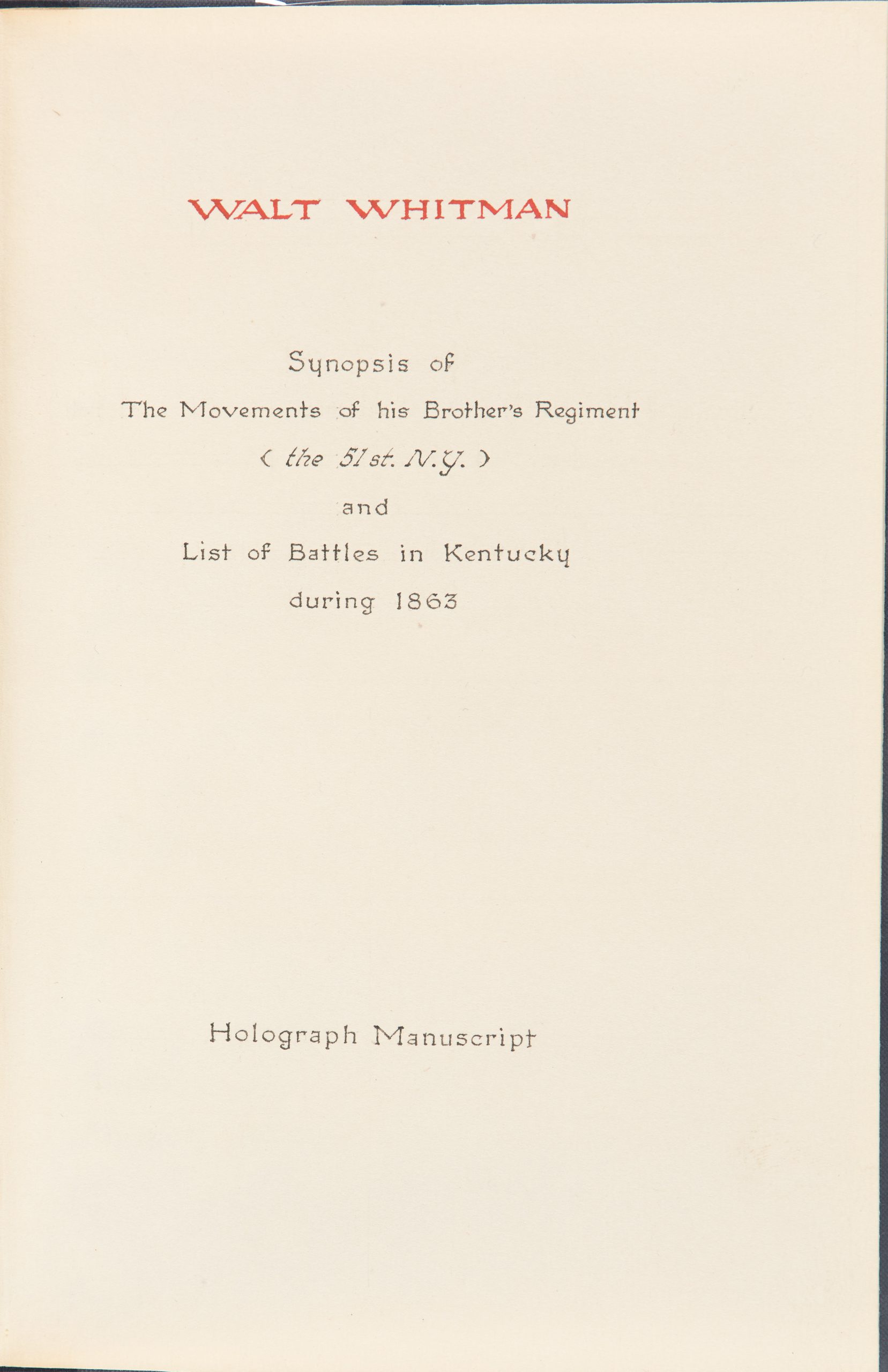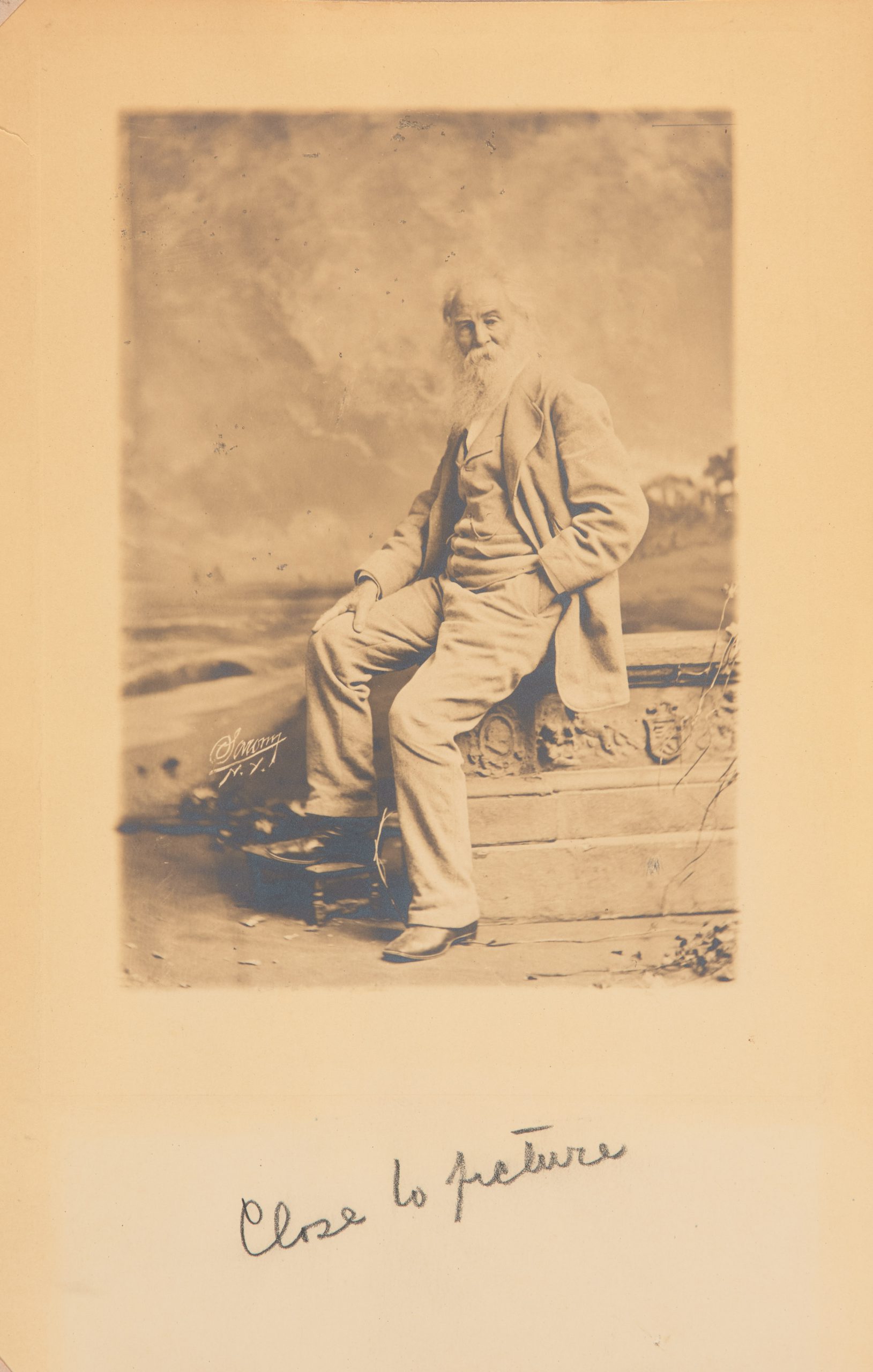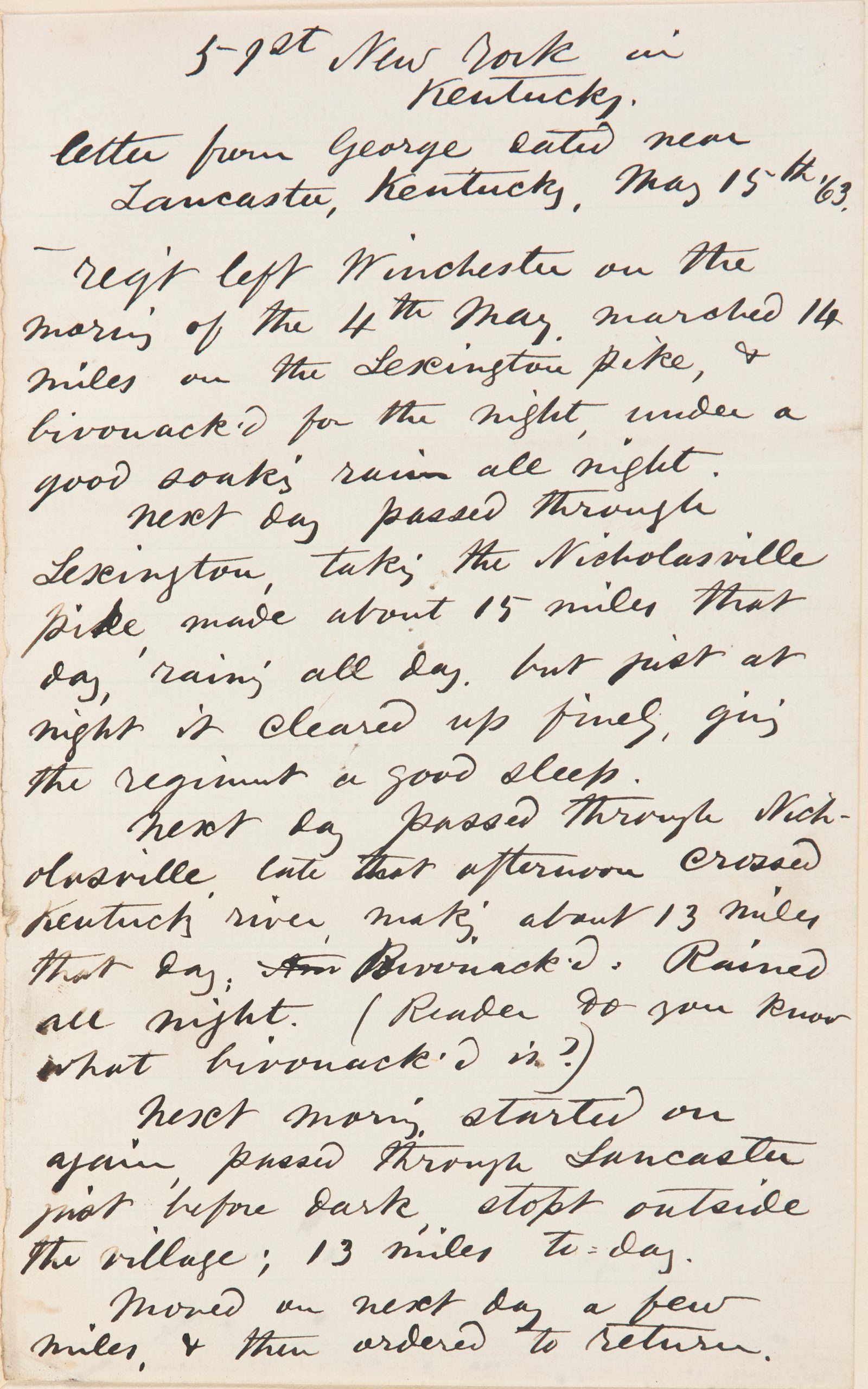Walt Whitman and the Civil War
WHITMAN, WALT. Autograph manuscript account of his brother George’s movements in the Civil War
No place, [1863]
Three pages. Ruled paper. Pencil docket in Whitman’s hand. Finely presented in a half navy morocco binding by Sangorski and Sutcliffe with a facsimile of Whitman’s signature on the upper board. Calligraphic title page “Synopsis of the movements of his brother’s regiment (the 51st N.Y.) and List of battles in Kentucky during 1863.” Three pages. Fine condition.
Whitman’s brother fights in the war: the origin of the poet’s nursing service. Walt Whitman did not enlist at the outbreak of the war as he was already over 40 and his aging mother needed his attention. His brother George, ten years younger, enlisted in the 51st N.Y. Volunteers and fought in numerous actions. George enlisted as a private in 1861 and was mustered out as a major in 1865.
In December of 1862, word reached the family in Brooklyn that George had been wounded at Fredericksburg. Walt traveled to Washington to search the hospital wards and then finally found George, only slightly wounded, at the army camp in Virginia. Greatly affected by the suffering he witnessed firsthand, Whitman decided to stay in Washington to care for these sick and wounded soldiers.
In this three-page manuscript Whitman presents George’s news from the front and lists the battles in which he fought. Much of the manuscript consists of notes from his brother’s letters. He reports on the movements of his regiment and discusses the commanding officers. When he reaches Kentucky he discusses its farming, the fact that the state is “about half union, half secesh.” He notes that “The white people don’t work. They are sociable and friendly. Everybody goes on horseback.”
Whitman then comments that his brother “Must have reached Vicksburg to “to reinforce [Gen. U. S.] Grant. About the middle of June, from about the 6th July to 23rd campaign after [Gen. Joseph] Johnston.”
On the final page Whitman has written a list of the battles in which George’s regiment fought including Second Manassas, Antietam, Fredericksburg, and Vicksburg, some of the most eventful engagements of the war. George would fight for another two years. The poet was obviously proud of his brother’s service, following his progress closely, first from home in Long Island and later from the hospitals in Washington.
Provenance: Alfred Goldsmith, with a letter by him on this manuscript.
on hold



